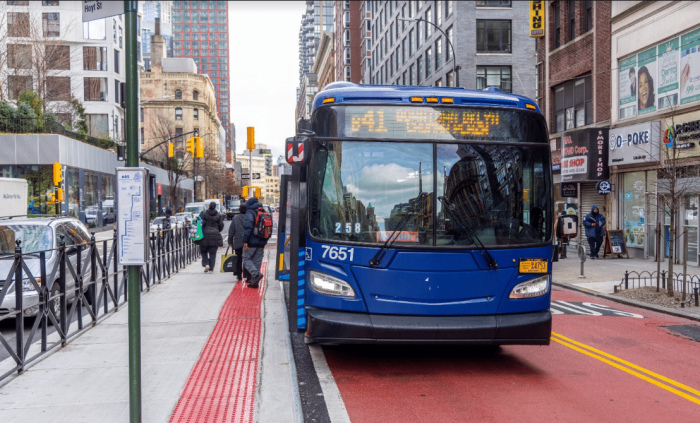By Joe Maniscalco
Pending legislation at the statewide level could give your local community board something it’s never had before in its 30-year history – teeth. Up until now, the role of the 59 community boards located throughout the city has been strictly an advisory one. What input they’ve had on formulating the city’s budget, improving the delivery of services and planning and reviewing land use issues has all been just talk. Now, however, a series of new bills could actually give boards some clout and the ability to compel city agencies like the Department of Buildings to answer to them. According to Assemblymember Jim Brennan – sponsor of the new legislation – nearly half of all building plans submitted to the city each year are self-certified plans that do not require governmental oversight. Almost 70 percent of all those self-certified plans contain errors, according to Brennan, who is chair of the Committee on Cities. “Most are technical, but some are intentional,” Brennan told those gathered for last week’s meeting of the Madison-Marine-Homecrest Civic Association held at the Kings Highway Reformed Church, located at the corner of Quentin Road and East 27th Street. In addition to a billion dollars worth of building damage in the city each year, Brennan said that 20 to 30 construction workers are killed. “There are a lot of problems with the building boom,” the assemblyman said. “Some think that they can get away with anything.” If Brennan’s proposals become law, local community boards could order the DOB to conduct as many as 30 building audits each year on projects the neighborhood believes to be suspect. The borough president would also have the same power. Brennan’s other proposals would also license all general contractors, require the DOB to provide the community board access to all building plans submitted to the city as they change and develop, compel the DOB to report to community boards about the status of all actions the agencies have taken concerning building projects in their districts, and supply community boards with their responses to complaints within 60 days. “Just by putting this sunshine on the DOB, it will pressure them to perform,” Brennan said. That’s something residents from Quentin Road to Manhattan Beach say is long overdue. At last week’s meeting many complained of widespread abuse, of contractors violating stop work orders and builders playing it fast and loose with the letter of the law. “The language in special permits needs to be clarified,” Ed Jaworski, vice-president of the Madison-Marine-Homecrest Civic Association said. Critics say that nebulous terms like “modest expansion” and “character of a neighborhood” have been twisted and exploited to allow developers to virtually build almost anything they want. “If we could get it codified, that could have a great impact on our community,” Jaworski said. The Brennan proposals accompany a handful of other bills presently being considered in the legislature aimed at cracking down on unscrupulous builders. The measures would slam architects who repeatedly file bad building plans with penalties ranging from tax liens to outright bans. Another measure would put an end to the so-called 10-foot excavation rule which makes it difficult for homeowners to collect on damages done to their building foundations as a result of negligent contractors. Theresa Scavo, Community Board 15 chairperson, welcomed the proposals. “I love it,” she said. “Ill use it. You give me the power I’ll do it.” The changes could have a huge impact on the 600 or more New York City residents who are hit with vacate orders each year, according to Brennan. “It’s like a fire,” the assemblyman said. “Many are rendered homeless.” According to Brennan these people have become the victims of predatory landlords eager to get low and moderate income renters out so they can renovate the building and attract more affluent clientele. “Builders knock out beams and drive tenants right out of the building,” Brennan said. “This is very common with the rise of real estate prices, predatory people are taking advantage of this. This conduct could be criminal, but unless you get caught, you can do it.”































